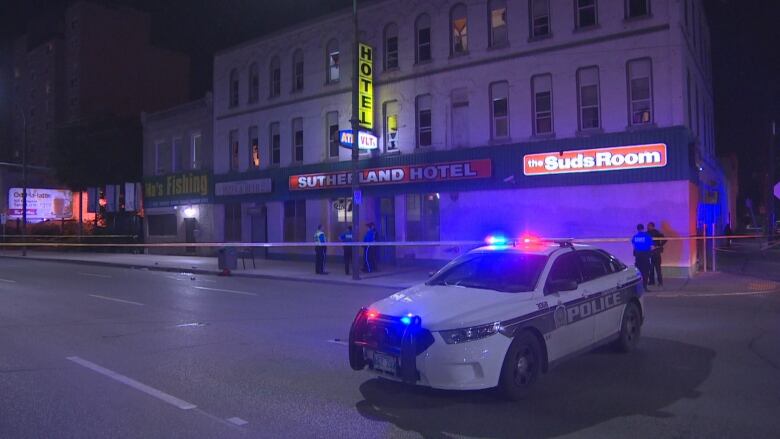Breathalyzer delay for officer charged in fatal hit-and-run raises questions, former cop says
Officer charged in fatal hit-and-run wasn't given breath test for 3 to 4 hours

The length of time it took for police to give a breathalyzer test to an off-duty officer charged in a fatal hit-and-run raises questions about whether the results are even admissible in court, says a former Winnipeg police officer.
Len Eastoe, who now runs Traffic Ticket Experts to help people fight fines, wonders why it took three to four hours to administer the test to Const. Justin Holz.
The 34-year-old officerwas arrested a short while after Cody Severight, 23, was hit and killed on Oct. 10.
"It is a rather strange period of time," Eastoe said.
Two police officers assigned to investigate Holz have been placed on leave and could face charges. Winnipeg police Chief Danny Smyth said the officers did not administer the breathalyzer test and were not at the scene of the collision.
Although it is normal to wait a period of time before giving a breath sample, the window between when the crash happened and when Holz was tested is too wide, Eastoe said.
"There has to be some sort of a reason for that, and then you've really got questions as to whether that test is going to be admissible or not."
Eastoe says tests usually need to be done within two hours.
Both the prosecution and defence will likely use the time gap in their arguments in court, Eastoe said.
If the test results show a blood alcohol content of just below .08, then the prosecution could try to argue that the levels peaked while he was driving and have been slowly going down.
If it comes in just above .08, then the defence could argue that it has slowly been absorbing into his system, and that he was under the legal limit during driving time.
Even if the breathalyzer results came in under .08, Eastoe says a case could still be made on the charge of impaired driving, based on observations of the suspect and the scene.
Holz is charged with impaired driving causing death and fleeing the scene of an accident.
More from CBC Manitoba:
With files from Samantha Samson












_(720p).jpg)


 OFFICIAL HD MUSIC VIDEO.jpg)
.jpg)



























































































